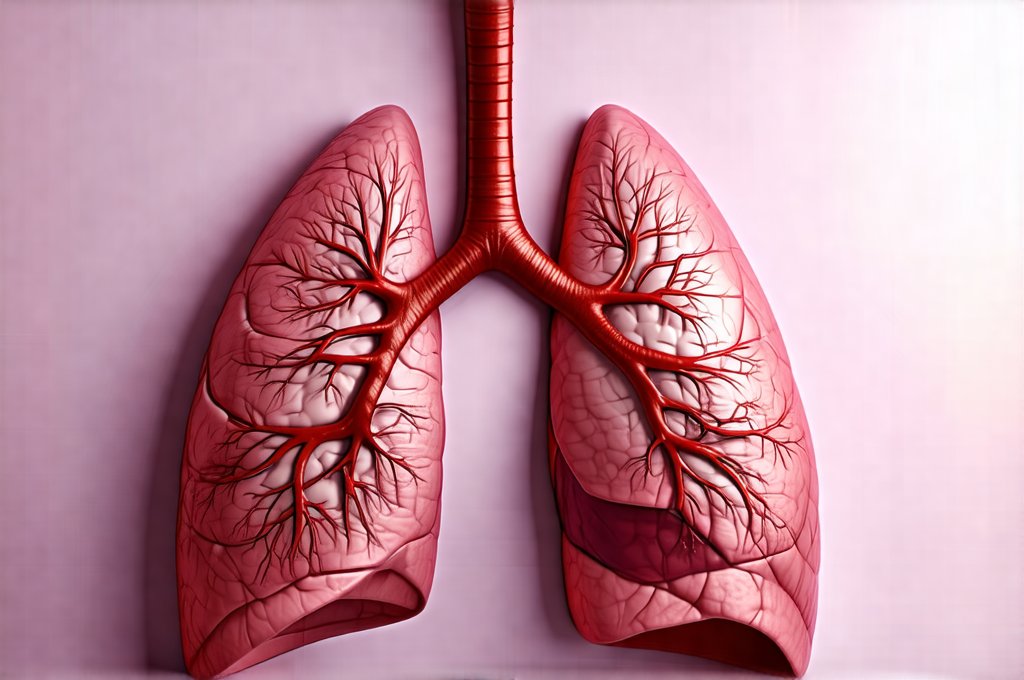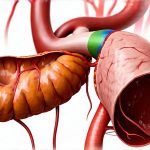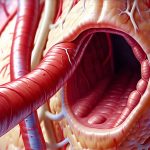Gastroesophageal reflux disease (GERD), commonly experienced as heartburn, is often seen as an uncomfortable but relatively benign condition. Many people manage their symptoms with over-the-counter medications and lifestyle adjustments, viewing it as a temporary annoyance. However, chronic, untreated GERD can be far more serious than most realize, extending its reach beyond the esophagus and potentially impacting respiratory health. The seemingly unrelated systems of digestion and respiration are intricately connected, and when acid reflux becomes persistent, it can initiate a cascade of events leading to long-term lung damage in some individuals. Understanding this connection is crucial for proactive management and preventing severe complications.
This isn’t simply about occasional discomfort; we’re talking about the potential for chronic respiratory issues that significantly impact quality of life. The repeated exposure of stomach acid into the esophagus, and subsequently, the airways, creates an inflammatory environment that can lead to a range of pulmonary problems. While not everyone with GERD will experience lung complications, recognizing the risk factors and understanding the mechanisms involved is essential for both patients and healthcare providers. This article aims to explore the complex relationship between GERD and potential long-term lung damage, outlining how it happens, what conditions can arise, and strategies for mitigating these risks.
The Pathway from Stomach Acid to Lungs
The link between GERD and lung health isn’t a direct one in most cases. It’s typically aspiration – the unintentional inhalation of stomach contents into the lungs – that forms the primary pathway for damage. While many reflux episodes are “silent,” meaning they don’t produce noticeable symptoms, even these can contribute to micro-aspirations over time. Larger aspirations are more likely during sleep, when protective reflexes like coughing and swallowing are diminished. This process isn’t always obvious; patients may not realize they’re aspirating stomach acid while asleep.
The acidic nature of gastric contents is particularly damaging to the delicate tissues of the lungs. The normal pH balance in the respiratory tract is slightly alkaline, making it vulnerable to acidic exposure. Repeated or significant aspirations trigger inflammation and irritation, initiating a cycle of damage and repair that can eventually lead to chronic lung conditions. Moreover, the presence of pepsin, a digestive enzyme found in stomach acid, exacerbates the injury as it actively breaks down proteins within the lungs.
The severity of lung damage depends on several factors, including the frequency and volume of aspiration, the acidity of the refluxed material, and the individual’s underlying respiratory health. Individuals with pre-existing conditions like asthma or COPD are particularly vulnerable to complications from GERD-related aspiration. The body’s ability to clear aspirated material also plays a role; compromised immune systems or impaired mucociliary clearance (the natural cleaning mechanism of the airways) can worsen outcomes. If you suspect food sensitivities might be playing a role, it’s important to investigate further.
Asthma and GERD: A Complex Interplay
The relationship between asthma and GERD is bidirectional, meaning each condition can exacerbate the other. It’s estimated that up to 75% of people with asthma also experience GERD symptoms, and conversely, a significant proportion of individuals with GERD report asthmatic symptoms. This connection isn’t fully understood, but several mechanisms are believed to be at play.
- Microaspiration can directly irritate the airways in asthmatic patients, triggering bronchospasm (airway narrowing) and exacerbating asthma symptoms like wheezing, coughing, and shortness of breath.
- Refluxed acid can increase airway hyperresponsiveness – a hallmark of asthma – making the lungs more sensitive to triggers.
- GERD may alter the effectiveness of asthma medications. For example, some inhaled corticosteroids used for asthma management can be deactivated by stomach acid if reflux is present.
Managing both conditions simultaneously is crucial. Often, addressing the underlying GERD can lead to improved asthma control and reduced reliance on rescue inhalers. However, it’s important to note that treating GERD doesn’t always resolve asthma, especially in individuals with long-standing or severe disease. A comprehensive approach involving medication, lifestyle modifications, and potentially referral to both a gastroenterologist and pulmonologist is often necessary. It’s also worth considering if one intolerance could be contributing to your symptoms.
Chronic Obstructive Pulmonary Disease (COPD) and Reflux
Similar to asthma, COPD – encompassing conditions like emphysema and chronic bronchitis – can be significantly affected by GERD. Individuals with COPD are already dealing with airflow obstruction and inflammation in their lungs, making them more susceptible to the damaging effects of aspiration. The compromised lung function associated with COPD also impairs the body’s ability to clear aspirated material effectively, creating a vicious cycle.
The increased pressure within the chest during coughing – a common symptom of COPD – can actually worsen GERD by forcing stomach contents upward into the esophagus. This creates a feedback loop where COPD exacerbates reflux, and reflux further complicates COPD management. Chronic inflammation is central to both conditions, and the combined effects of acid aspiration and underlying lung disease can accelerate disease progression. Recognizing digestive stress as a potential contributing factor can be beneficial for overall health management.
Managing GERD in COPD patients often requires careful consideration of medication choices. Some medications used to treat GERD, such as proton pump inhibitors (PPIs), have been linked to an increased risk of pneumonia in certain populations, so their use must be carefully evaluated by a physician. Lifestyle modifications and dietary changes remain essential components of management. It’s also important to understand if trigger foods are exacerbating your symptoms.
Interstitial Lung Disease and Acid Reflux
Interstitial lung disease (ILD) refers to a group of disorders that cause progressive scarring (fibrosis) of the lungs. While less commonly linked directly to GERD than asthma or COPD, there’s growing evidence suggesting a connection in some cases – specifically, reflux-induced interstitial pneumonitis. This occurs when repeated microaspirations lead to chronic inflammation and eventual fibrosis within the lung tissue.
The pathogenesis involves several factors: the direct corrosive effects of acid on lung cells, activation of inflammatory pathways, and the breakdown of structural proteins within the lungs by pepsin. ILD can be challenging to diagnose, as its symptoms often overlap with other respiratory conditions. Individuals with unexplained ILD should be evaluated for underlying GERD, especially if they have a history of heartburn or regurgitation.
Early diagnosis and aggressive management of GERD are critical in preventing further lung damage in patients with ILD. Treatment typically involves high-dose PPIs, lifestyle modifications to reduce reflux, and potentially immunosuppressant medications to dampen the inflammatory response within the lungs. The prognosis for reflux-induced ILD depends on the stage of disease at diagnosis and the effectiveness of treatment. If you suspect nutrient deficiencies are present, consult a healthcare professional. Furthermore, understanding if you can be sensitive to food texture might help identify potential triggers.
It’s important to reiterate that this information is intended for general knowledge and informational purposes only, and does not constitute medical advice. If you are concerned about GERD or its potential impact on your respiratory health, please consult a qualified healthcare professional for proper evaluation and personalized recommendations. Self-treating can be dangerous, and early intervention is often key to preventing severe complications.


















